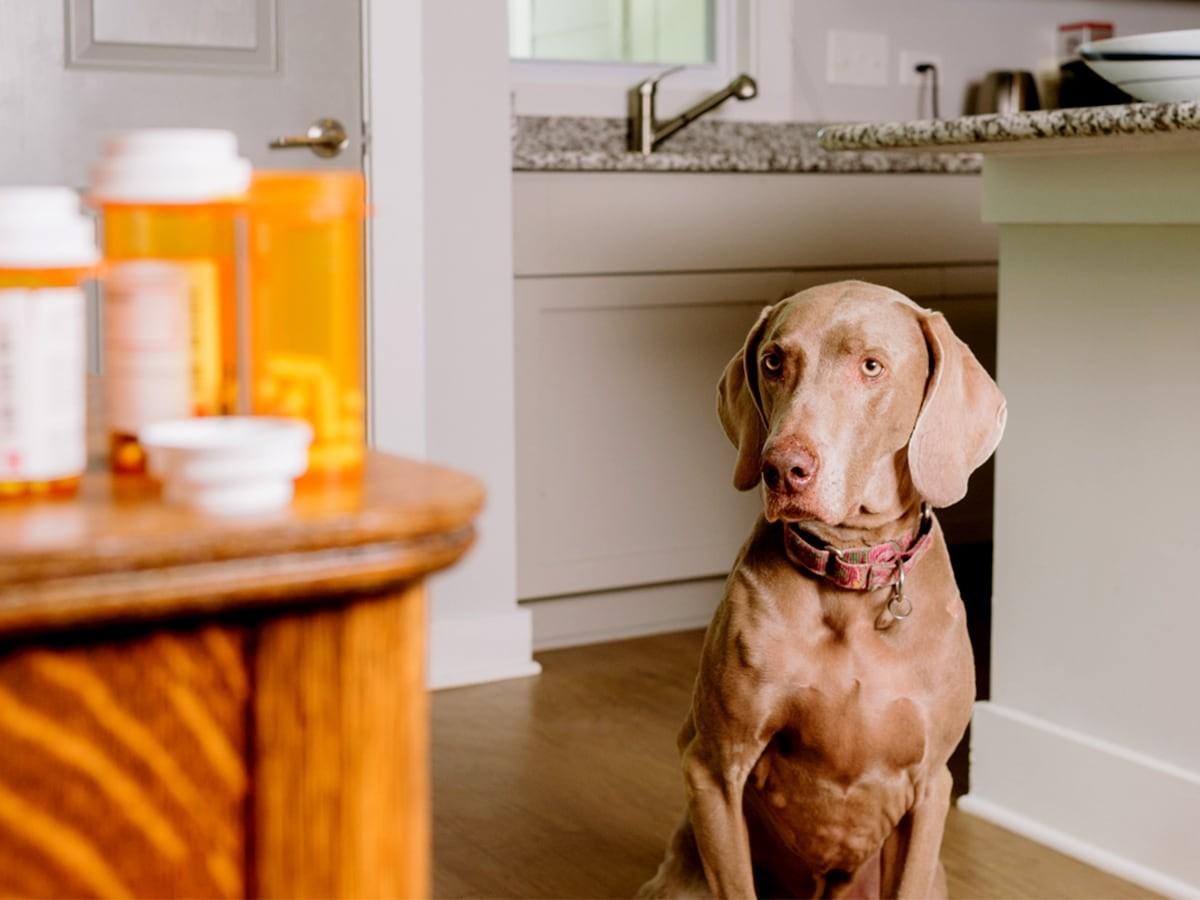It's a pet owner's nightmare: your dog has gotten into your medication. Human medications are formulated for us, not our furry friends, and many can be highly toxic, even fatal for dogs. Quick action is crucial. Let's discuss what to do and why immediate veterinary help is essential.
Why Are Human Medications Dangerous for Dogs?
Dogs and humans metabolize medications differently. Drugs that are safe, even beneficial for us, can have severe side effects in dogs, causing:
Organ damage
Seizures
Internal bleeding
Heart problems
Coma
Death
Even common over-the-counter medications like ibuprofen (Advil) or acetaminophen (Tylenol) can be life-threatening for dogs.
Signs Your Dog May Have Ingested Medication
Recognizing medication poisoning in dogs can be difficult. Symptoms vary depending on the drug and the amount consumed. Look for these warning signs:
Diarrhea
Lethargy or extreme weakness
Drooling and excessive salivation
Loss of coordination or stumbling
Tremors or seizures
Irregular heartbeat or changes in breathing
Discolored gums (pale or bluish)
Loss of appetite
Act Now: What to Do If Your Dog Ate Your Pills
Breathe and Stay Focused: Seeing your dog in distress is alarming. Take a few deep breaths and remember, acting swiftly and calmly is the best way to help your furry friend.
Secure Any Remaining Pills: Immediately remove any leftover medication from your dog's reach. This prevents them from ingesting even more, which could worsen the situation.
Don't Force Vomiting: Unless specifically instructed by a veterinarian or poison control expert, do NOT try to make your dog vomit. For some medications, vomiting can cause further harm by spreading the toxins.
Call for Immediate Help:
Pet Poison Helpline: 855-764-7661 (A fee may apply, but these experts offer highly specialized toxicology advice 24/7).
Your Veterinarian: Call immediately during their business hours for personalized guidance.
Emergency Vet Clinic: If your regular vet is unavailable or it's after hours, seek immediate care at an emergency animal hospital.
Gather Vital Information: While on the phone, be ready to provide:
Medication Name & Strength: Look at the pill bottle or packaging.
Approximate Number of Pills Missing: Provide the best estimate you can
Time of Ingestion: When did it likely happen? The sooner treatment starts, the better.
Your Dog's Symptoms: Describe any changes in their behavior or condition.
What Medications are Most Dangerous to Dogs?
Be extra vigilant with these medications – accidental ingestion can have severe consequences:
Pain Medications (NSAIDs): Ibuprofen, naproxen, etc.
Antidepressants: Prozac, Lexapro, Zoloft, etc.
ADHD Medications: Adderall, Ritalin, etc.
Heart Medications: Beta-blockers, blood pressure medications, etc.
Sleep Aids: Xanax, Ambien, etc.
Expert Insights From Spot
Curious canines often get into trouble by ingesting unexpected things. Internal data from Spot underscores this risk, with a concerning number of dog toxin/toxic ingestion claims – nearly 4,977 in total. The average cost of treating these cases is $662. If you suspect your dog has ingested something poisonous, contact your veterinarian immediately. Keeping medications and other potentially harmful substances out of reach of your dog is crucial to prevent these incidents. Pet insurance can help cover the cost for unexpected vet bills like these, learn more about what pet insurance covers and how pet insurance works.
Prevention is Key – Keep All Medications Out of Reach!
Dogs are curious and opportunistic – if they can reach it, they might just taste it. Prevention is the simplest and most effective way to safeguard your furry friend from accidental poisoning.
Childproof Doesn't Mean Dog-Proof: Even if your medications are in childproof containers, determined dogs can sometimes chew through them.
Secure Storage is Essential: Choose storage locations your dog absolutely cannot access. High cabinets and locked drawers make great options.
Supervise, Supervise, Supervise: The safest approach is to never leave medications unattended where your dog can reach them.
Additional Preventive Tips:
Travel Safely: Use divided pill organizers and place them securely within your luggage or carry-on bags when traveling with medication.
Dispose Responsibly: Wrap old or expired medication in a sealed bag and place it within your regular trash to prevent scavenging.
Train Your Dog: Teach commands like "leave it" and "drop it" to help manage your pet's curiosity around tempting objects.
By making medication safety a habit, you can create a safe environment for your beloved companion and avoid the worry and heartbreak of accidental ingestion.
Pet Insurance Can Help in a Crisis
In the stressful event of accidental medication ingestion, pet insurance plans like those from Spot can help financially. Spot plans may cover treatment costs related to poisoning, including:
Emergency vet visits
Diagnostic tests
Hospitalization
Protect Your Furry Friend: Act Fast, Get Expert Help
If you even suspect your dog has consumed human medication, don't delay. Don't rely on internet searches for self-diagnosis or home remedies when your pet's life may be at stake. Seeking professional advice from your veterinarian or the Pet Poison Helpline is the safest, most reliable course of action for your beloved companion.

I've had the privilege of immersing myself in the realm of pet safety. As the owner of an energetic mini golden doodle, I know just how stressful being a pet owner can be. I am dedicated to ensuring our beloved pets enjoy a life brimming with good health.












